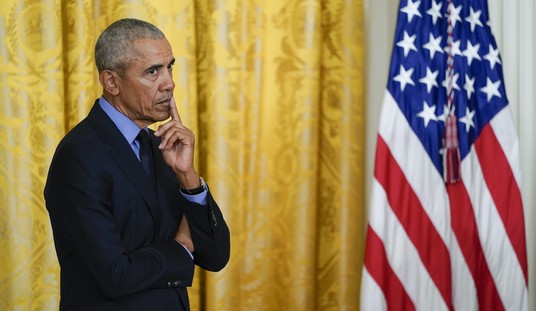It took a few tries, but Ayn Rand’s magnum opus is finally coming to the big screen. On Tax Day (appropriately), Atlas Shrugged will show in over three hundred theaters.
The book tells a story about the importance of entrepreneurs and the free markets in which they thrive. It poses the question: what if the most productive people stopped producing? What if they became so fed up by regulations and crony capitalism that they went on strike?
The story takes place in a dystopia, in which intellectual elites team up with government bureaucrats to make the most successful people less so, all in the name of equal opportunity. What this amounts to is crippling regulation and handouts to less successful but better-connected business owners. The “anti-dog eat dog rule,” which forbids competition in some parts of the country and is meant as a favor to a bumbling business owner, is one example. Another is the Equalization of Opportunity Bill, which forbids anyone from owning more than one business and is aimed at a particularly successful industrialist. In both cases, the regulators claimed that the rules were needed to keep the little guy from being crushed by big business. The real purpose, though, was to transfer wealth from those who had earned it to those who wanted it.
The practical effect of these rules was, of course, a weakened economy. The producers were unable to provide the goods to smaller business or jobs to the middle class. The promulgated purpose of the anti-dog-eat-dog rule may have been to “equalize opportunity,” but no one stepped in to complete the unfinished projects. The businessmen who sought handouts (“moochers,” as Rand called them) resentfully expected industrialists to continue to produce enough goods and wealth for them to ride on, all while they complained about the deleterious effect of capitalism on society. After being simultaneously begged for favors and crippled by regulations, is it any wonder that the most successful capitalists wanted to stop holding up the world? They did not want to be exploited anymore.
Recommended
Although the book was published 54 years ago, it is easy to see parallels with today’s regulatory environment. GE CEO and Obama Jobs Czar Jeffrey Immelt could easily pass for James Taggart, who the anti-dog-eat-dog rule is meant to benefit. There is a menu of regulators who could fit the roles of Rand’s bureaucrats. My co-worker, News Editor Katie Pavlich commented that watching the movie felt like watching reality TV.
The philosophy that Rand described in her book, which is also a theme in the movie, is objectivism. Her belief is that the pursuit of rational self-interest is virtuous, and that the only way to achieve liberty is through capitalism. She also extols reason and human ability. Her heroes revel in their own ability and take pleasure in seeing how much they can achieve.
If the theme is self reliance, achievement and capitalism, then the back story is particularly relevant. John Aglialoro, a private investor, held the rights to the movie for seventeen years. He and director Paul Johansson tried to initiate production more than once, but each time found themselves held up by Hollywood. Finally, they invested $10 million and produced it themselves.
FreedomWorks, a non-profit based in Washington, D.C., marketed the movie heavily, seeing an opportunity to continue spreading the message of free markets and individual liberty. “FreedomWorks is marketing Atlas Shrugged to spread it to the grassroots movement,” a representative tells Townhall. “It is an end-run against the Hollywood establishment the way the tea party was an end-run against establishment Republicans and Democrats during election season. … This movie is going to succeed because it is going to inspire people.”

























Join the conversation as a VIP Member